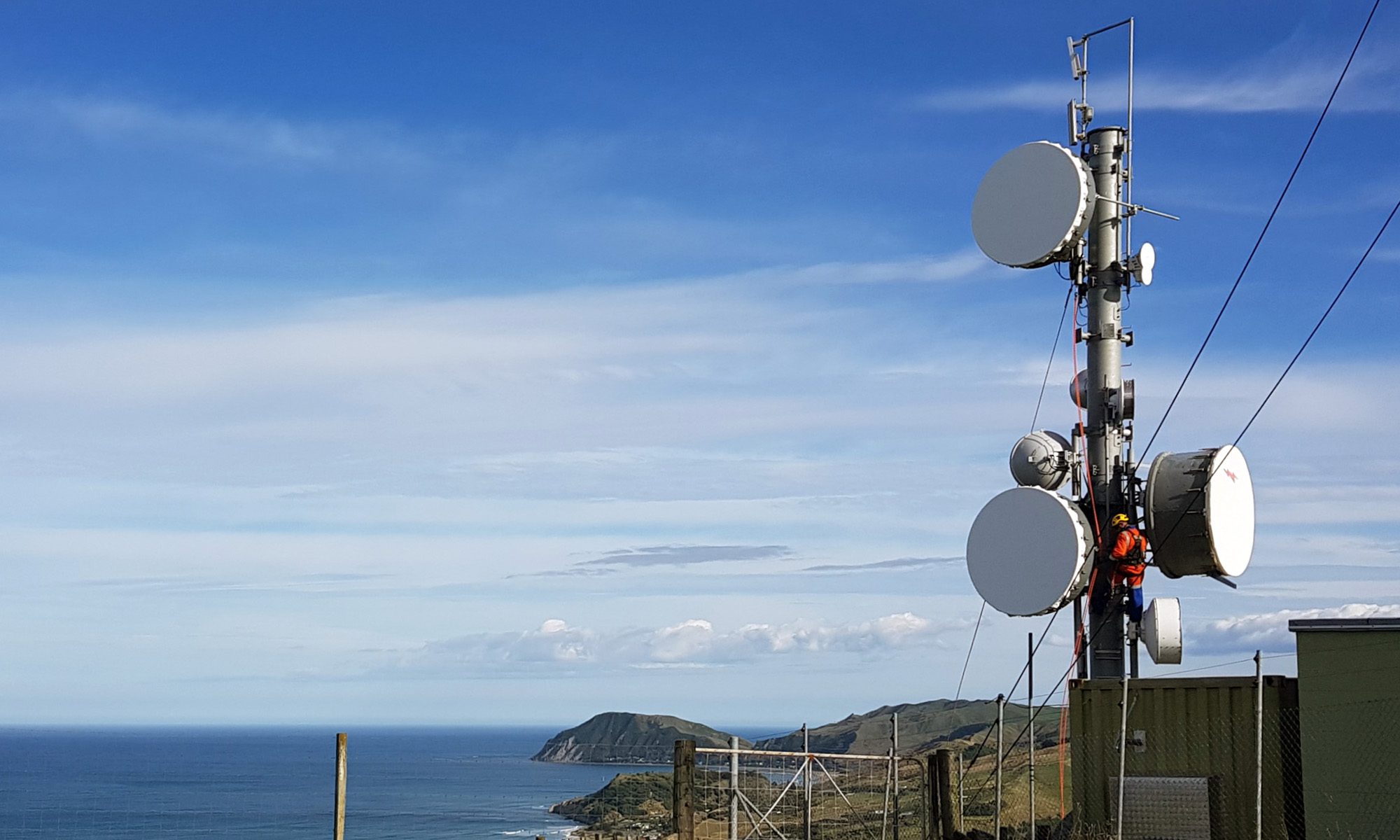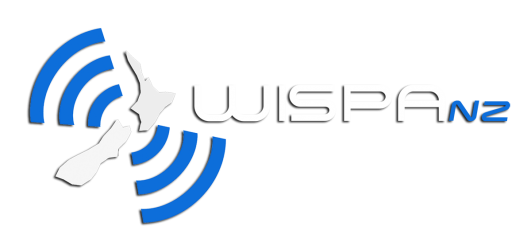WIZwireless – a WISP Profile by Ernie Newman
Who had an image of WISP founders and owners as geeky, techy, rough-and-tough alpha males? Think again. Bridget Canning of WIZwireless in the Wairarapa district breaks the mould. She and farmer husband John founded and own the business, but day by day it is clearly Bridget in the driver’s seat.
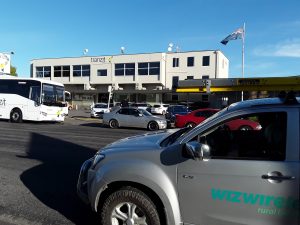
From its new offices just north of Masterton town, the WIZ footprint goes northward to Pongaroa on the outskirts of Eketahuna. To the south it touches Lake Ferry on Palliser Bay, west to the Tararuas and east to wild coastal beaches including Castlepoint and Riversdale. It’s rugged country and these relatively tight boundaries have been set for good reasons – the philosophy is to keep the business within 90 minutes drive of the Masterton base.
The undulating and steep terrain demands an unusually high ratio of sites to customers. That necessitates about 115 sites around the district – some owned by individual customers but most owned by WIZ. A handful have co-location – other phone companies or wireless users sharing the same site.
Frustration at having no broadband at the Canning farm 45 minutes northeast of Masterton was the reason WIZ got started. Going to town was, and remains, a time consuming activity. In the early 2000s the benefits of broadband connectivity for rural dwellers had become very plain but there was no obvious plan to roll out beyond the main centres any time soon.
So the Cannings decided on an audacious scheme to build it themselves for the use of their local community. The grand plan was to connect the homestead and about 15 neighbouring properties. Bridget recalls spending $150,000 in setup costs over two days, with the expectation of recouping this over time from twenty neighbours. However, in those days Telecom was largely unregulated and was not a friendly player – it may have been a coincidence but the moment it learned about WIZ going live it re-opened the local exchange and beefed up its service, reducing the initial potential customer count from twenty to three.
“For a time we had New Zealand’s most expensive Internet,” Bridget recalls, “so we had to go to market and find a whole lot more customers in a hurry. Our investment blew out to over $1.5 million over 10 years of growth.” Those were challenging times. Bridget recalls getting a lot of support from James Watts of neighbouring WISP Inspire.net as she fought to build and grow the network and to make the investment pay. For the past three years it has become cashflow positive. WIZ is on very firm ground these days.
Bridget recounts her story as we make the 45 minute journey from WIZ to her family farm. This is a challenging drive – usually dominated by those careering battering rams loaded with logs that tilt alarmingly into the path of oncoming traffic on bends. Its easy to see the attraction of a session online compared to a physical journey!
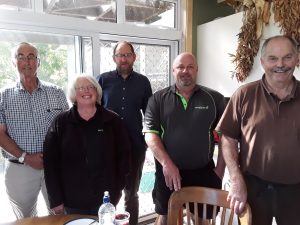
Along the way Bridget and colleague Shaun Minifie point out numerous WIZ sites. Notably the towers are shorter than a lot of WISP sites because the steepness of the hills makes extra height unnecessary and reducing the risk of wind problems the Wairarapa is well known for.
Bridget and Shaun are among 5 full time workers. The company is among 9 WISPs to have a contract to build parts of the government’s Rural Broadband Investment (RBI2) project. WIZ is very proud of the speeds it offers being much higher than the 25Mbps required as part of the RBI2 contract – when I was there Bridget ran a speed test from her home which came in at 54Mbps/19Mbps – significantly faster than typical VDSL or basic UFB fibre.
The basics of WIZ are comparable to most WISPs. International connectivity is obtained through the Internet exchange in Auckland. Snap (now part of 2degrees) provides the connection to the Tranzit building at the back of the Masterton CBD from where it runs to the network operations centre (NOC) just north of the town. There’s ample redundancy – if the Tranzit site goes down the signal can be diverted direct to the NOC. And if an individual sites fail, the signal is automatically diverted around the network via a different route.
Near the Canning farm we turn off up a long and seriously steep farm track, climbing towards WIZ’s Turkey Ridge site on the rooftop of the eastern Wairarapa.
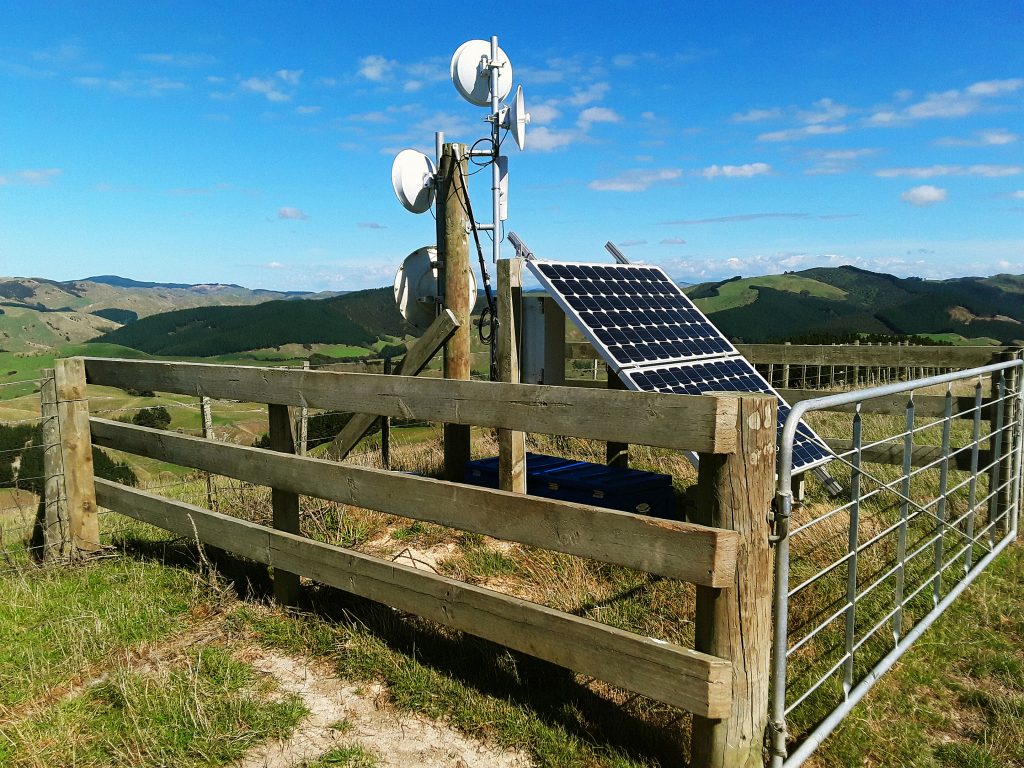
The view from the top is spectacular by any standards – WISPs are privileged to enjoy the best views in the world often in places where few other people get to go. We pause a while to enjoy it while Bridget and Shaun explain the various dishes and panels. The site is built to last and even in the unlikely scenario of a solar panel blowing away the battery setup would keep it going for at least ten days.
Happy Wiz Customers
Back near sea level we go into the Canning homestead where a group of neighbours who also happen to be WIZ customers have assembled to meet us. They tell us about what having fast Internet suddenly available meant to them personally and commercially.
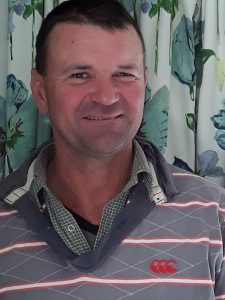
Charles White is a very new WIZ customer who was until recently on Spark ADSL. At its best it did the job but it was very inconsistent – “we could always tell when school was out or there was high usage by the kids down the road.” Sometimes the family had to set the alarm and get out of bed late at night to use the Internet. “We couldn’t have dreamed of Netflix in those days,” Charles says.
He and his wife have three daughters and noted that a limit on one Internet user at a time was not good for family harmony. “We’re an equestrian family,” Charles recounts, “and these days entries for events are all online – the girls are at boarding school and when they come home for holidays they expect to stay in touch with their friends, do homework and organise their parties – they don’t appreciate being asked to go offline so I can do the banking.”
So moving to WIZ was a huge relief and benefit. The girls are already looking at Netflix. Sky is definitely under threat at the White household.
Alan Emerson operates a well-known public relations practice with wife Adrienne D’Ath, working from their farm in rural Wairarapa. He came to WIZ early on when he heard about it in 2006. There was no broadband at home whatsoever and trying to file stories with editors in Feilding was all but impossible. He was losing clients as a result. WIZ built a site for him, the connectivity was solved overnight, and a number of former clients returned. Now the consulting business can connect as well as if it were in the centre of a major city, using Skype, booking flights, booking tickets to the rugby or concerts, and accessing multiple phone connections for voice calls.
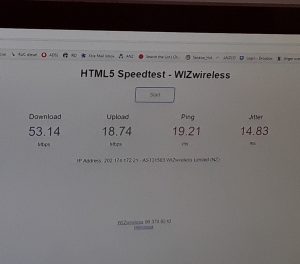
“We had a relative visit from Wellington who commented that our WIZ connection here is faster than their Spark connection in central Wellington on fibre,” Alan says. “Its all about the contention (ratio of subscribers to the available bandwidth) and WIZ is way faster.”
John Canning has to say good things about WISP because he owns it, but when he takes off his WIZ hat and puts on his sheep and cattle farmer one you can see he’s delighted with the way broadband has enabled the progress of the farm. Among the specialist projects is a contract to supply a supermarket that wants same day kill. The animal has to be on the hooks within 3 hours of leaving the farm. It’s important to know the yield from the previous day before selecting the animals for the next day, so now he is able to look at the results online and adjust his drafting.
Flooding can be an issue, and now he gets 3 hours notice of a potential flood from a rain gauge up in the hills sending signals back to the farm over the Internet. And the need to buy stock selectively following the mycoplasma bovis outbreak has complicated the sale and purchase process, but using fast Internet gives him the data and speed he needs to buy rapidly and profitably.
John’s an enthusiast for the potential of communications technology in farm management. He talks of automated measurement of grass, fertiliser, yields and soils using satellites. A WIZ customer already uses an infra red camera in the middle of their free range pig farm for security and so the overseas owner can see what is happening night and day. Vineyards are doing the same.
“But the big benefit is staff,” John says. “Whatever their hobbies and pastimes may be, the Internet is usually a key part, so having top class connectivity makes the staff and their partners much more happy and stable – that’s good for everyone.”
